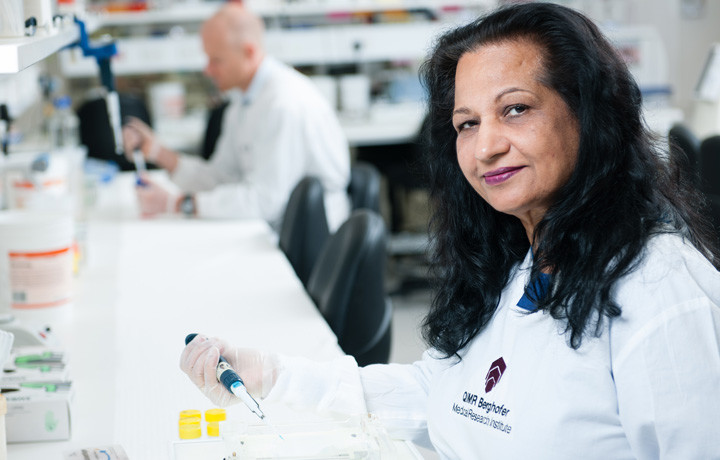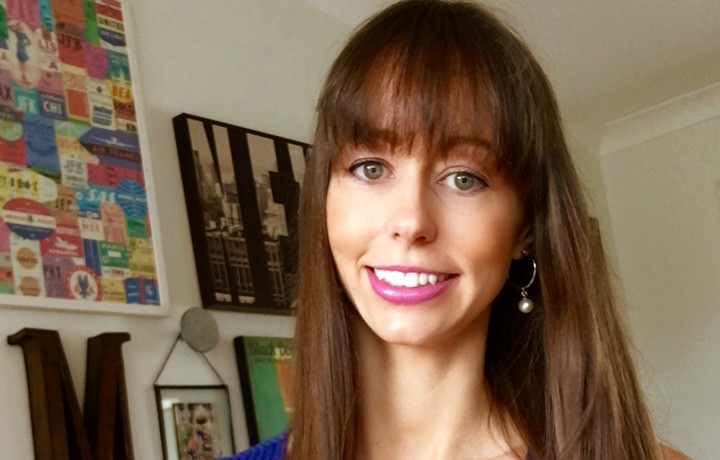REPURPOSING AN EXISTING DRUG TO TREAT TRIPLE NEGATIVE BREAST CANCER
Triple negative breast cancers are present in about 15% of breast cancer patients. Unfortunately, these tumours are often aggressive and fast-growing. One gene, called TP53, can play a significant role in some of these tumours if it is mutated. It might be possible to target this mutated gene with drugs.
In this NBCF-funded study, Professor Khanna and her team will repurpose an existing drug to investigate its efficacy against cancers with a mutated TP53 gene. The drug, called auranofin, is currently used in the treatment of inflammatory and rheumatoid arthritis.
The research will be conducted over three years and holds promise for rapid translation into the clinic as the drug has previously been approved by the Food and Drug Administration (FDA) in the US, and has minimal side effects. The other advantage with ’re-purposing‘ drugs such auranofin is that the timeline and cost to take the drug through clinical trials will be far less, providing a quicker, cheaper alternative than a completely new drug.
“Thank you for generous support for our research on the development of new therapies for breast cancer patients. All your donations advance our vision of zero deaths from breast cancer,” says Professor Khanna.
“There are currently no targeted therapies in clinical use for triple negative breast cancer and very few in clinical trials. There is a clear opportunity and need for development of new therapies for triple negative breast cancer.” NBCF-funded researcher, Professor Kum Kum Khanna (PICTURED LEFT)

WHY IMPROVED TREATMENT FOR TRIPLE NEGATIVE BREAST CANCER IS SO IMPORTANT FOR WOMEN LIKE MELISSA
“At present, chemo is the mainstay of treatment for triple negative tumours. While there are some trials in place, more funding is needed to test targeted treatments on triple negative tumours.” Melissa, diagnosed 2010

MORE ABOUT MELISSA
Melissa was working as a flight attendant when she was diagnosed with triple negative breast cancer in her late-twenties. Within a week-and-a-half of her diagnosis, Melissa had a lumpectomy, followed by numerous rounds of chemotherapy and radiotherapy.
Melissa endured severe side effects from the treatment, including vomiting, nausea, and early on-set menopause, which meant she had to go through IVF to protect her fertility.
Melissa is now back to her healthy self and doing everything she can to highlight the importance of breast cancer research.
“Breast cancer is not a single disease,” she says. “There are many different forms all requiring different treatment. Research can ultimately save lives.”